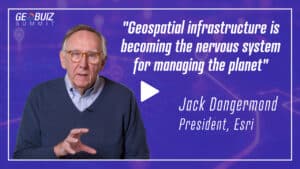“One who controls space, controls space battles and 21st century,” with this statement running through the first session of DefSat 2023 began its day 2. The discussions were held to identify the capability gaps that needs to be filled, the expectations of different industries and what needs to be done.
The global race to outer space has surpassed preceding strides. Nations like India can ill afford to procrastinate or relegate this domain to lower significance. The space sector must pursue timely prospects, through filling in gaps.
“Private space players can very quickly step-in and provide solutions with scales that governments cannot. The future wars and peaceful economic growth are both reliant of space capabilities. India must define its space philosophy, doctrine and strategy to enable building a tight roadmap for the industry,” said Lt. Gen. PJS Pannu, PVSM, AVSM, VSM (Retd), Former Deputy Chief, Indian Integrated Defense Staff (Operations), Chair of the Aerospace and Defence Committee, SIA-India.
Dr. S Somanath, Chairman, ISRO, says, “There is an urgent need to create demand, expansion of space launch capabilities, application capabilities and usability widely across the space sector. We need to connect artificial intelligence and drone technologies along with quantum communication capabilities with space to get the maximum benefit out of space sector.”
Addressing Need for Capabilities
Any country that is self-reliant today in whichever sector, has gone through years and decades of struggle to build itself. India will have to be ready to accommodate the future technology requirements as well as the resources to build and operate them.
Dr. G Satheesh Reddy, Scientific Advisor to Raksha Mantri pointed out that with the rate at which technology developments are taking place, “we will soon have to be very clear what we need to develop within the country and what needs to be sourced from outside until we develop the technologically sound resources. That can be done by developing new institutes, collaborative efforts within existing institutes to develop future ready skilled and capable resources.”
“For R&D ecosystem, technological capabilities have to be enhanced at institutional level. There is a need for creation of action plans, Research and development platforms as well as observation capabilities for the entire nation,” added Dr. Somanath.
“India is ushering into the commercial space and satellite communication era where the opportunities are humongous, enhancing its global digital footprint. The emergence of the commercial space sector and startups throw up some attractive possibilities for the country’s Defence requirements,” stated Dr. Subba Rao Pavuluri, President, SIA-India.
Air Vice Marshal DV Khot, AVSM, VM, Director General, Defence Space Agency, shared his thoughts that by combining space-based assets with ground-based assets, military capabilities can be significant improve, which will provide services a clear advantage in any conflict. “To achieve this, we need to work closely with industry partners to identify new technologies and capabilities that can be developed to meet the unique needs of our military. It is also important to collaborate with the international partners to leverage their expertise and knowledge in the area,” he added.
ALSO READ: The Growing Importance of Space Diplomacy









